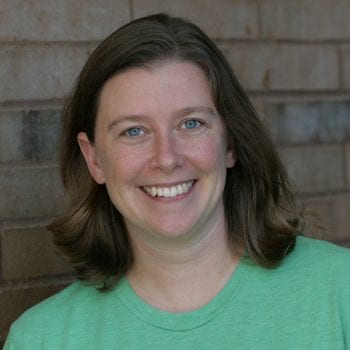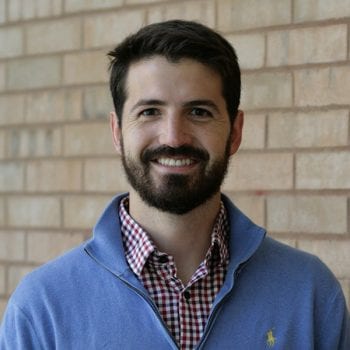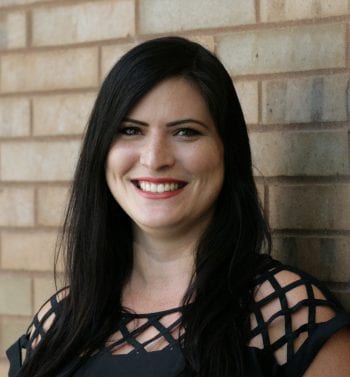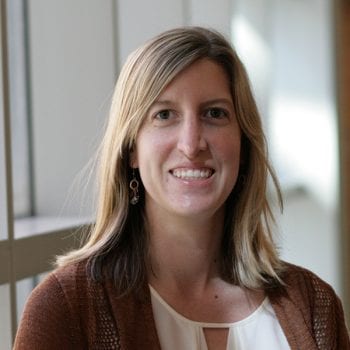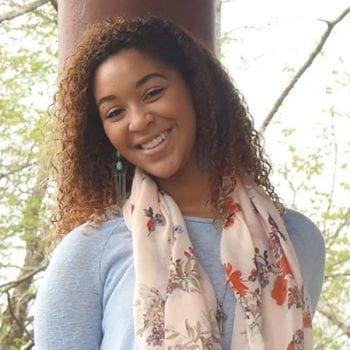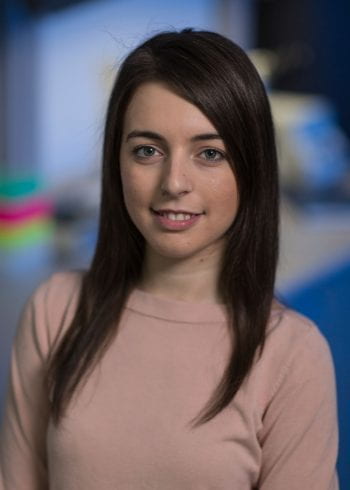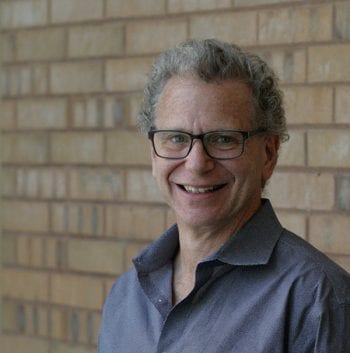
Joshua B. Rubin, MD, PhD
Principle Investigator
Dr. Rubin is a Professor of Pediatrics and Neuroscience at Washington University School of Medicine in St. Louis. He is originally from Ardsley, New York and is a graduate of Yale University. Dr. Rubin went on to receive his MD and PhD from the Albert Einstein College of Medicine in New York City. Following graduation, he completed a residency in Pediatrics at Boston’s Children’s Hospital and a fellowship in Pediatric Hematology and Oncology at the Dana Farber Cancer Institute and Harvard Medical School where he trained in pediatric neuro-oncology with Dr. Mark Kieran. At the Dana Farber Cancer Institute, Dr. Rubin completed his post-doctoral training in the laboratory of Dr. Rosalind Segal.
In Dr. Segal’s laboratory, Dr. Rubin became the first person to engineer brain tumor cells to express firefly luciferase and to then use the light emitted to measure intracranial growth of medulloblastoma and glioblastoma. A breakthrough, it allowed for new study of the alpha-chemokine receptor CXCR4, found overexpressed in more than 23 cancers, contributing to tumor growth, relapse and therapeutic resistance. His technique allowed him to investigate the efficacy of CXCR4 antagonism, an approach shown to reduce tumor growth and sensitize cancer cells to treatments, among other important benefits.
In 2003, Dr. Rubin was recruited to Washington University where he established his research lab and co-founded the Pediatric Neuro-Oncology Program at St. Louis Children’s Hospital. In the clinic, his research activities include many therapeutic clinical trials and a significant focus on understanding the basis for cognitive deficits after treatment for pediatric brain tumors. The focus in his laboratory is on links between normal brain development and the genesis of brain tumors, especially those aspects of development that render males more vulnerable to brain tumors than females, and the development of novel therapeutics.
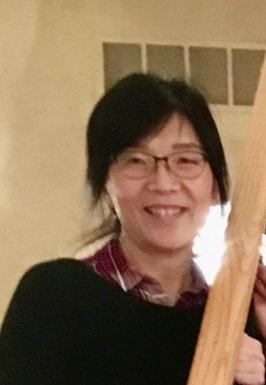
Lihua Yang, MD, PhD
Lihua is a senior scientist in Rubin lab. She receive her MD from China and PhD from Japan. She has worked in internal medicine department in China. After PhD graduation, she has worked as an assistant professor in Ehime University in Japan. She joined Rubin lab as Postdoc in 2004, after then has been working in two photon imaging lab in Washington University in St Louis as a scientist. She came back to Rubin lab in 2019, because she loves the research that really helps to improve clinic efficiency. Her projects focus on the genesis of brain tumors, intracranial growth of medulloblastoma and glioblastoma, and the development of novel therapeutics. In her free time, she enjoys Chinese painting, walking with her dog, taking a bakery course online, listening to music, fishing.
Favorite part of being in the Rubin Lab: PI’s full support, working with so many smart young students, the ideas that refresh your brain, not only science, you can enjoy movies, stories, fun news…
Nicole Warrington, BA
Nicole is a staff scientist who began in the lab in 2002 when the Rubin lab was in Boston. She received her B.A. in Biology from Boston University in 2002. She has studied the effects of sex differences in cAMP synthesis and degradation and the role of cAMP suppression in brain tumor growth. She is interested in how interactions between gene expression, gene variants, and patient sex identify subsets of glioma and how sex effects on oncologic processes lead to different mechanisms of tumorigenesis in males and females. She also assists in management of the lab. In her free time, Nicole works on social justice initiatives in the community. She also enjoys learning history, spending time with her pups, and visiting the ocean.
Favorite part of being in the Rubin Lab: Among the things I appreciate the most about working in the Rubin lab is the opportunity I have had to develop as a scientist. When I started in 2002, I was a technician with little lab experience. Josh encouraged me to pursue my interest in the lab’s projects, and with his mentorship, I have authored scientific papers and presented our work at conferences. I enjoy the supportive environment of the lab, the connections we have developed with patients and their families, and the sense of curiosity and excitement that students bring to the lab.
Nathan Rockwell, BS
Nathan is a PhD student in the Molecular and Cell Biology program. He received his B.S. in Biochemistry and Molecular Biology at the University of Richmond. He worked one year as a lab technician at the University of Richmond before coming to WashU in 2015. His PhD project is focused on sex differences in the aberrant transcriptional activity of gain-of-function p53 mutants in GBM. He is additionally interested in mutant p53 interactions with the epigenetic reader Brd4 as a novel mechanism of mutant p53 localization and specificity to aberrant target genes. In his free time Nathan enjoys spending time with his wife Hallie and bernedoodle Pippin, running, playing in local sports leagues, and cooking.
Favorite part of being in the Rubin lab: The individualized scientific and career support provided by Josh in one-on-one meetings, and the lab support and feedback on writing and presentations.
Jasmin Sponagel, BS
Jasmin is a PhD student in the lab. She grew up in Germany and received her B.S. in Biotechnology from University of Applied Sciences in Mannheim, Germany in 2014. During that time she spent two semesters doing full-time research in labs at Washington University. She worked in a cancer research lab at the German Cancer Institute in Heidelberg, Germany for a year before starting her PhD in Molecular Cell Biology at WashU. For her PhD project, Jasmin is investigating sex differences in the PI3K/mTOR pathway in glioblastoma and how those sex differences translate to differences in drug response. Furthermore, she is investigating sex differences in the TCA cycle and glutamine metabolism in male and female glioblastoma. In her free time, Jasmin is heavily involved in the Young Scientist Program, a student-led outreach program at WashU that aims to support young scientific minds in St. Louis schools. She also enjoys spending time with her dog in the park and experiencing the wide variety of restaurants and bars in St. Louis.
Favorite part of being in the Rubin lab: First, the lab environment – as students we receive lots of mentoring and support for grant writing, practicing talks and poster presentations, etc. If support is needed everyone gets together and gives valuable feedback. Even though we all work on independent projects, we support each other and help out whenever needed. Secondly, mentoring experiences – since I first joined the lab, I have had the opportunity to mentor undergraduate and high school students. It has been an incredibly valuable experience for me.
Lauren Broestl, BA
Lauren is an MSTP student in the lab. She received her B.A. in Molecular Cell Biology and English from UC Berkeley in 2011, and spent several years working in a translational neuroscience lab before starting medical school at Wash U in 2014. For her PhD project, she is investigating how mechanisms of sexual differentiation establish differences in tumorigenic potential between males and females. In particular, she is interested in how sex differences in the epigenetic landscape established during development alter the cellular response to oncogenic stress. In her free time, Lauren enjoys reading, cooking, and playing with her dog. Other hobbies include traveling, trying new restaurants, and watching musical theater.
Favorite part of being in the Rubin Lab: Scientific brainstorming sessions – the whole lab will come together to discuss a grant and everyone throws out suggestions for experiments and bounces ideas off each other. It’s a lot of fun!
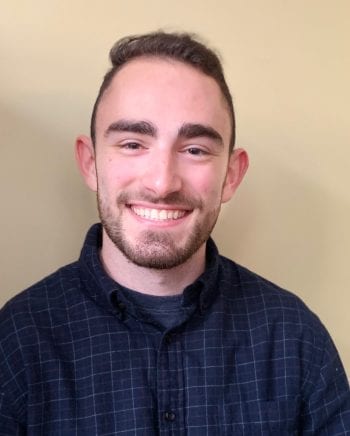 Joe Lagas, BS
Joe Lagas, BS
Joe is a PhD student in the Molecular and Cell Biology program. Joe received his bachelor of science degree in Molecular and Cellular Biology from University of Arizona in 2018. His doctoral project focuses on sex differences in brain cancer. In his spare time, Joe enjoys rock climbing, drawing, and playing soccer.
Favorite part of being in the lab: I love the supportive culture in the Rubin lab. More often than not data you collect may not make sense at first glance; it is in this situation that the Rubin lab really shines. You can ask anyone in the lab for help with your experiments or data, and not only will they help you understand it, but they will also work with you to help you learn through a good natured and humorous environment. You may make mistakes, but in this lab you will be learning every step of the way and you will enjoy yourself while you do it.
Lucia Grandison, BA
Lucia is a research technician in the lab exploring how sex differences in cellular senescence contribute to brain aging and ultimately the sex difference in glioblastoma incidence. She recently graduated from the Washington University College of Arts & Sciences with her B. A. in Philosophy-Neuroscience-Psychology. Outside of the lab she’s an active performer and dancer, specifically within the salsa/bachata, belly dance, kpop and hip hop communities. Other favorite activities include walking around the Central West End, tackling DIY projects, and picnicking on Art Hill.
Favorite part of being in the Rubin Lab: The collaborative and supportive environment. Everyone- including undergrads and rotating students- is encouraged to speak up in lab meetings and challenged to think beyond the bench work to the bigger picture.
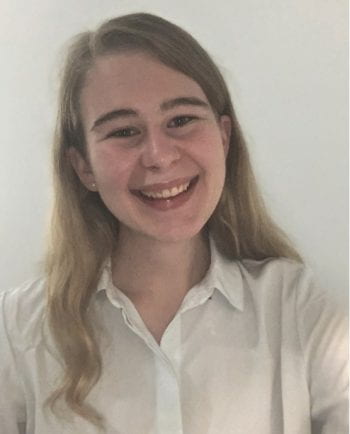
Jill Jones, BS
Jill graduated from Duke University in May 2020 with an honors degree in Neuroscience, Linguistics, and German. She has worked in the Rubin Lab every summer since 2018 and is continuing on in the lab this year as a Research Technician while applying to Medical Scientist Training Programs. Jill’s projects in the Rubin Lab (co-mentored by Dr. Joe Ippolito in Radiology) focus on sex differences in the metabolic stress response and in glioblastoma mitochondrial metabolism. Outside the lab, you can probably find Jill playing music, learning languages, or drinking coffee (a Rubin Lab staple!) with family and friends.
Favorite part of being in the Rubin Lab: Being surrounded by people who push me to be a better scientist and human being every day. Also Drink-in-Place and Corona Club
Lorida Llaci, BS
Lori is a PhD student in the Molecular Genetics and Genomics program. She moved to the United States from Albania to get her Bachelor of Science in biochemistry from Arizona State University. While in Arizona, she worked on translational research for several years in the Neurogenomics Division at the Translational Genomics Research Institute (TGen) before starting graduate school. Co-mentored by Dr. Rob Mitra and Dr. Josh Rubin, she is focused on exploring sex differences in transcriptional profiles of glioblastoma models in single cells. In her free time, she likes to read, run, explore new cuisines, travel and play the piano.
Favorite part of being in the Rubin Lab: The incredible supportive culture of all members towards one-another as well as the great mentorship from Josh towards the right questions and answers in our research.
Former Lab Members
Amy Barone, MD
After completing her postdoctoral training in the lab, Amy joined the US Food and Drug Administration (FDA) in 2014 as a clinical reviewer on the team that reviews drug development for pediatric solid tumors, brain tumors and rare cancers. As a clinical reviewer, Amy is responsible for the review and regulatory oversight of numerous investigational new drug applications (INDs), new drug applications (NDAs), biologic license applications (BLAs), issuance of pediatric written requests and pediatric study plans, review of fast track and breakthrough therapy designation requests, coordinating and participating in meetings of the Pediatric Subcommittee of the Oncology Drug Advisory Committee, and providing advice regarding the commercial development of drugs for the treatment of cancer. She has presented at national and international meetings, is the scientific liaison for CNS tumors at FDA, and serves as a FDA representative on the NCI Brain Tumor Steering Committee and on the Agent Prioritization Committee (APC) of the Pediatric Early Phase Clinical Trials Network (PEP-CTN). She continues to care for patients in an outpatient hematology/oncology clinic at Nemours/A.I. duPont Hospital for Children.
Gina Rhee
Gina is a medical student studying how the process of cellular senescence can contribute to age-related sex differences in glioblastoma rates. Originally from Syracuse, NY, she came to Washington University for college and medical school. She joined the Rubin lab because of her strong interest in the study of sex differences in glioblastoma. In her free time, she enjoys photography, running, climbing, and napping.
Favorite part of being in the Rubin lab: I particularly love the camaraderie, the mentorship, and the humor within the lab.
Najla Kfoury, PhD
Najla is currently a staff scientist who joined the Rubin lab in early 2015 as a postdoctoral research associate. She received her B.S. in Medical Laboratory Technology from the American University of Beirut and her M.Sc. and Ph.D. in Molecular Biology and Genetics from Wayne State University in Michigan. In the Rubin lab, Najla is studying the molecular basis for sex differences in glioblastoma. Her focus is how the normal epigenetics of sexual differentiation interact with the abnormal epigenetics of brain tumors to produce cell intrinsic sex differences in brain tumor biology. In her free time, Najla enjoys cooking, playing tennis, the Symphony and traveling.
Favorite part of the being in the Rubin Lab: Josh’s infectious passion for science, the amazing collaborative efforts of everyone in the lab to generate data for their own projects and for grants, the annual lab retreat, culture nights, and the spontaneous, stress-relieving happy hours.
Rajarshi Sengupta, PhD
After completing his postdoctoral training in the lab, Raj joined the American Association for Cancer Research (AACR) in 2016 as a Senior Project Manager and is currently the Senior Editor and Scientific Advisor for the organization. His responsibilities include managing the production and release of the annual Cancer Progress Reports, which are the cornerstone educational pieces developed by AACR for the Congress and general public. In addition, Raj oversees the development of various additional scientific documents for dissemination to the cancer research community. Raj also serves as a senior advisor to the CEO and collaborates with colleagues, members, and leadership of the organization to advance many of AACR’s vital scientific initiatives.
Shyam Rao MD, PhD
After completing his postdoctoral training in the lab, Shyam joined the faculty in the department of radiation oncology at Memorial Sloan-Kettering Cancer Center University in New York City. He is now an Associate Professor at the University of California Davis Comprehensive Cancer Center where he serves as a Clinical Director for the department of radiation oncology. He specializes in the treatment of head and neck cancers with radiation therapy and is active in clinical research focused on improving outcomes for patients with head neck cancer.
Emily Slat MD, PhD
Emily Slat was a graduate student in both the Rubin Lab and Herzog lab. Since then, she has graduated from the WashU MSTP and started residency training in psychiatry. She is currently a third year resident in the General Psychiatry Residency Program at Washington University and a member of the clinical educator track within this program. She will start the Child and Adolescent Psychiatry Fellowship in July 2021. She hopes to join the Wash U faculty after graduation as a clinical educator with a focus on teaching trainees at all levels of medical training (medical students, residents and fellows) to critically assess the research literature and apply it to their clinical practice.
Tao Sun, PhD
Tao Sun joined the Nanomedicine Research Center in the Department of Neurosurgery at Cedars-Sinai Medical Center at Los Angeles after finishing his post-doctoral studies in 2016. He is currently an Assistant Professor whose research is mainly focused on the development of novel nano-therapy and immunotherapy for the treatment of brain cancer (glioblastoma and primary CNS lymphoma) as well as Alzheimer’s disease.
Stacey Ward, PhD
Stacey joined MilliporeSigma (formerly Sigma-Aldrich) after completing her post-doctoral work in January 2016. She is currently a Principal Scientist in the Cell Design Studio, an R&D group focused on cell line engineering using CRISPR/Cas9, zinc finger nucleases, shRNA, and lentivirus. In that position, she manages a team of bench scientists performing custom cell editing projects with a focus on next-generation sequencing technologies and immune cell editing, while also contributing to the company’s cell and gene therapy research.
Inema Orukari, PhD
After completing a co-mentored thesis project in the Rubin and Culver laboratories, Inema returned to medical school to complete his MSTP training.
